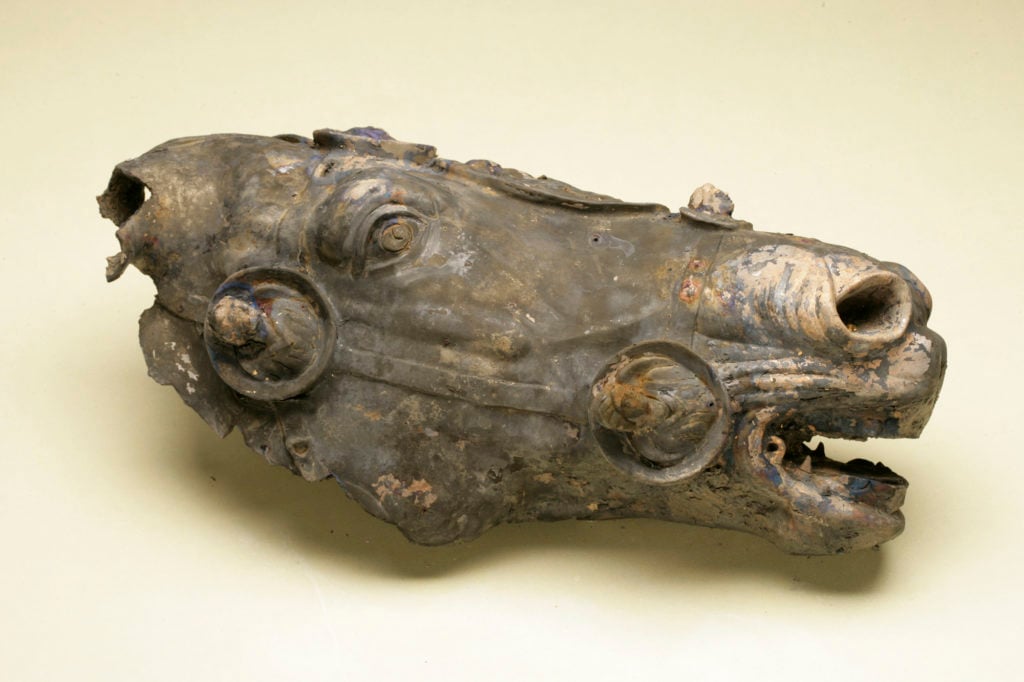Law & Politics
A German Farmer Was Just Awarded Almost $1 Million for an Ancient Roman Bronze Found on His Property
After the man learned that this was no ordinary find, he sued the government to get his fair share of the value.

After the man learned that this was no ordinary find, he sued the government to get his fair share of the value.

Kate Brown

When archaeologists uncovered a 2,000-year-old Roman horse head during a dig on a farm in Lahnau, Germany, in 2009, they immediately knew it was the find of a lifetime. Now, almost 10 years later, a court has concluded that the farmer who owned the land deserves to profit off of the discovery, too.
The incredibly well preserved antiquity had been left at the bottom of a 36-foot well, covered with water and protected from air. Initially, the state had paid the farmer just €48,000 (about $55,946) for the head, which was found on his property.
But the man, whose name has not been made public, sued the government after reading news reports about the gravity and value of the discovery, which was trumpeted as one of the best preserved Roman bronzes in the world. On July 27, the Limburg regional court concluded that the farmer was entitled to half the estimated €1.6 million ($1.8 million) value of the antiquity.
The local government now owes man a total of €773,000 (nearly $904,000)—plus interest. (The decision was first reported by Courthouse News.) artnet News reached out to the state government to see if it plans to appeal the decision, but did not hear back by the time of publishing.
Experts suspect that the bronze was left behind after an invasion caused the town’s inhabitants to flee in a hurry. The large animal head adorned with gold leaves dates to 9 CE, weighs around 55 pounds, and measures almost 20 inches across. Its presence in the German town is a testament to the scale of Roman Empire.
Experts initially suspected that the head was part of a larger statue of a Roman general or military man. They found bronze sandals nearby, confirming the horse originally had a rider, as well as a statue of Mars, Roman god of war. Later, experts concluded the find was even more significant than originally thought. They concluded it was a statue of none other than Augustus, Caesar’s successor.